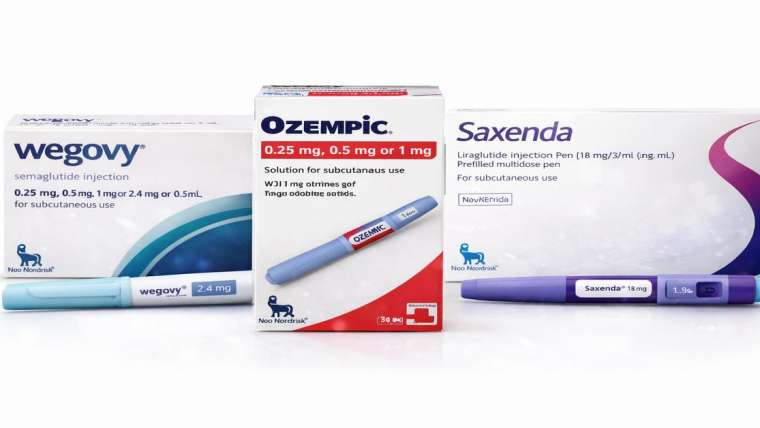
Understanding and Managing Weight Gain During Menopause
Weight gain during menopause is a common challenge for many women. As women reach their late 40s and early 50s, many experience unexplained weight increases, particularly around the abdomen. Despite diet and exercise efforts, 10-25 pounds can accumulate during this transition. While the official stance from some sources suggests that menopause itself isn’t to blame, there are several hormonal and physiological changes that make weight management more difficult during this time. Let’s explore why this happens and how women can address it effectively.
The Science Behind Menopausal Weight Gain
While it’s often said that menopause alone doesn’t cause weight gain, the truth is more nuanced. Menopause brings significant changes to the body’s hormonal balance, especially with estrogen, progesterone, and testosterone. As these hormones fluctuate and decline, they directly impact the metabolism, fat storage, and muscle mass, making it easier to gain weight and harder to shed it.
Research shows that these hormonal changes during perimenopause (the phase leading up to menopause) and menopause itself are closely tied to fat gain and muscle loss. A study from the Journal of Clinical Investigation found that fat accumulation during the menopause transition was doubled, and this process continued for up to two years after the final menstrual period. The combination of decreasing hormones and aging metabolic systems is a key factor in the weight gain that so many women experience during this time.
Hormonal Factors Contributing to Weight Gain During Menopause
Several key hormones play a pivotal role in how women store fat and use energy. Understanding their influence can help explain why weight gain is more common during menopause:
- Estrogen: Estrogen plays a key role in regulating fat storage and metabolism. As estrogen levels drop, fat is stored more easily, particularly around the abdominal area. Lower estrogen also causes a slowdown in metabolic processes, making it harder to burn calories efficiently.
- Testosterone: Testosterone is important for maintaining muscle mass and supporting fat burning. As testosterone decreases during menopause, muscle mass declines, slowing down metabolism and encouraging fat storage.
- Progesterone: Although progesterone doesn’t directly cause weight gain, its loss can lead to disrupted sleep patterns and hormonal imbalances, particularly in cortisol (the stress hormone), which can contribute to weight gain. Additionally, low progesterone can cause bloating and water retention.
- Insulin: Insulin helps regulate blood sugar and fat storage. During menopause, insulin resistance tends to increase, which means the body becomes less efficient at processing glucose, leading to fat gain, especially around the abdomen. This makes it harder to manage weight.
- Leptin: Leptin signals to the brain when you’re full. However, changes in leptin during menopause can make the body less responsive to this signal, leading to overeating. This, combined with insulin resistance, can result in erratic cravings and overeating.
Tackling Weight Gain: A Comprehensive Approach
The good news is that there are several strategies that women can adopt to combat menopausal weight gain. By focusing on diet, exercise, and lifestyle modifications, many women can manage their weight effectively during this transition.
1. Diet and Nutrition
As metabolism slows and insulin resistance increases, the foods you eat can have a significant impact on your ability to manage weight. A diet high in refined carbs and sugar can worsen insulin resistance and encourage fat storage. The key is to focus on whole, nutrient-dense foods and limit refined sugar.
One effective strategy for weight management during menopause is intermittent fasting, which can help regulate insulin levels and promote fat burning. While there are several different ways to practice intermittent fasting, it’s important to find an approach that feels right for your body and lifestyle. Consulting resources like Eat Fat, Get Thin by Dr. Mark Hyman or The Obesity Code by Dr. Jason Fung can provide further guidance on the best dietary approaches during this time.
2. Exercise
Exercise plays a crucial role in preserving muscle mass, boosting metabolism, and reversing insulin resistance. Strength training, in particular, is essential for maintaining muscle, which is key for burning fat. Increasing the intensity of aerobic exercise through interval training can also help rev up your fat-burning potential.
Experts recommend aiming for 150 minutes of exercise per week, incorporating both strength training and aerobic exercises. It’s important to choose activities that are challenging but sustainable, and that you can enjoy long-term.
3. Medications for Support
For some women, diet and exercise alone may not be enough to manage menopausal weight gain. In these cases, prescription medications like GLP-1 Agonists can provide extra support by helping to reduce appetite and improve insulin sensitivity. Medications can be a helpful tool in conjunction with lifestyle changes, giving women a boost toward achieving their weight loss goals.
4. Hormone Replacement Therapy (HRT)
Hormone Replacement Therapy (HRT) has been shown to be effective in managing many of the symptoms of menopause, including weight gain. HRT helps restore estrogen, progesterone, and in some cases, testosterone, which can counteract the metabolic slowdown associated with menopause.
Research supports the idea that HRT can help women maintain a healthier body composition, with less fat gain and less muscle loss. Bioidentical hormones, such as estradiol, progesterone, and testosterone, can be used to help manage menopausal symptoms and support weight management. It’s essential to work with a healthcare provider experienced in hormone therapy to find the right treatment plan.
Wrapping Up
While menopause brings inevitable hormonal changes that impact metabolism and fat storage, it doesn’t mean that weight gain is inevitable. By understanding the hormonal factors at play and taking a proactive approach through diet, exercise, and, if necessary, medications or hormone therapy, women can manage their weight effectively during this transitional phase of life.
Consulting with a healthcare provider to create a personalized plan based on your specific needs is the best way to navigate these changes and maintain a healthy weight during menopause.
Resources:
1. Mayo Clinic – “Hormone therapy: Is it right for you?“
2. UCLA Health – Article
3. AARG.org – “All Your Menopause Questions .. Answered“
4. Cleveland Clinic – Weight Loss Medications



